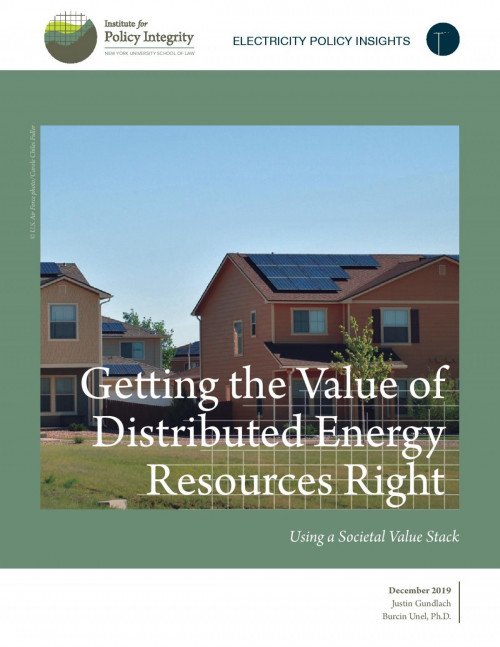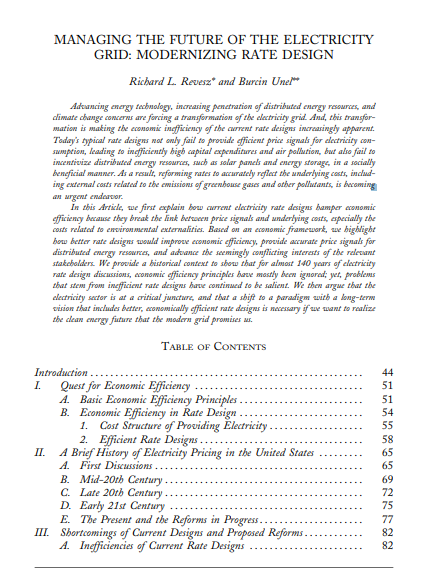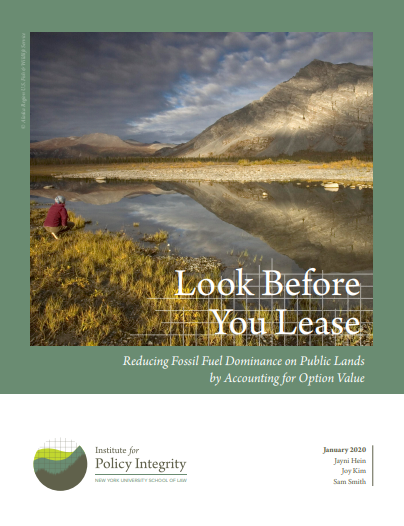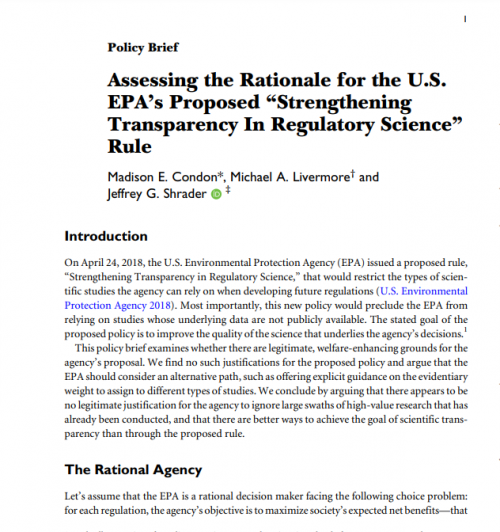The Institute for Policy Integrity produces a variety of publications. Our research reports develop in-depth research on our core issues, while our policy briefs and issue briefs provide focused analysis on more timely or particular topics. Our academic articles and working papers offer original scholarly research and analysis from established experts as well as fresh new voices.
Latest Publications
-
Managing the Future of the Electricity Grid: Modernizing Rate Design
This article, published in the Harvard Environmental Law Review, argues that the electricity sector is at a critical juncture, and that a shift to a paradigm with a long-term vision that includes better, economically efficient rate designs is necessary if we want to realize the clean energy future that the modern grid promises us.
-
Look Before You Lease
Reducing Fossil Fuel Dominance on Public Lands by Accounting for Option Value
While the Trump administration’s goal of “energy dominance” has increased the public lands available for oil and gas development, no effort has been made to modernize the leasing system, even in the face of climate change. Our report explains how option value—which accounts for the informational value gained by delaying leasing decisions—can and should be factored into the Bureau of Land Management’s land use planning processes. Accounting for option value at multiple stages of the land use planning process would significantly improve BLM’s public lands stewardship, better protect the environment, and regain some of the economic and strategic advantages it has ceded to private developers. The report also describes case studies where BLM’s failure to consider option value has led to costly litigation and missed opportunities.
-
Assessing the Rationale for the EPA’s Proposed Regulatory Science Rule
The U.S. Environmental Protection Agency (EPA) is considering a new policy that would prohibit the agency from issuing regulations that rely on studies whose underlying data are not publicly available. While the EPA claims it is pursuing this policy in the interest of transparency, we argue that such a prohibition would greatly hinder, rather than help, the rulemaking process and would likely result in undesirable regulatory outcomes that fail to maximize economic welfare.
-

Getting the Value of Distributed Energy Resources Right
Using a Societal Value Stack
Our report notes the growing presence of distributed energy resources, like solar panels and energy storage installations, and explains how they should be compensated for providing electricity services valued by utilities and their customers. Currently, 40 states use net energy metering programs to compensate DERs. We describe a promising alternative, “value stacking,” which better reflects DERs’ value, and provide suggestions for how to implement this approach.
-
State Nuisance Law and the Climate Change Challenge to Federalism
Two legal questions must be answered before the plaintiffs can proceed to the merits of their cases. First, can one bring state nuisance suits for damages caused by interstate pollution? Second, if such claims can be brought, are they nevertheless preempted by federal law? This Note will demonstrate that there is significant legal precedent for allowing state nuisance suits concerning transboundary pollution and no basis for removing the current cases to federal court. It will then argue that courts should not find federal law preempts nuisance lawsuits against these defendants



